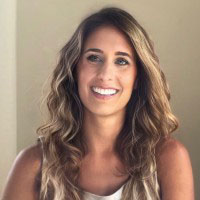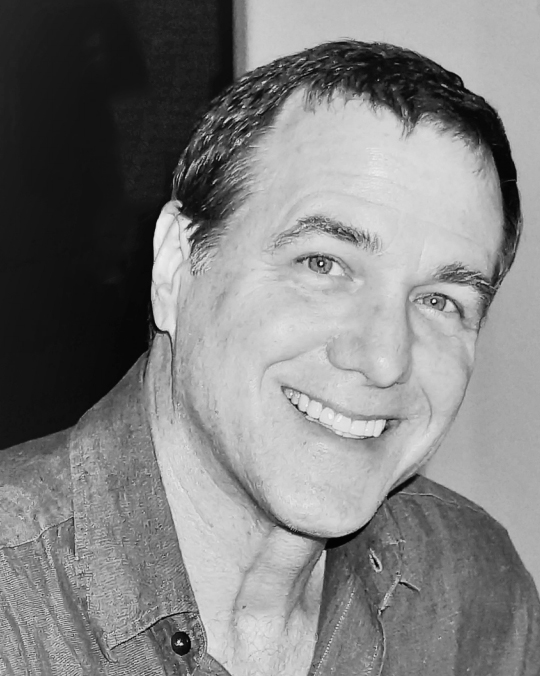AUTHOR SPOTLIGHT
Interview with Author,
Frederick Hornberger
“Artificial Love – The Perfect Relationship”
 Interviewed by Host Selah Stahrsen
Interviewed by Host Selah StahrsenSelah Stahrsen LLC, Media
Orlando, FL
Date: 4-25-24

Selah:
Welcome Frederick Hornberger to “Author Spotlight,” where we meet new authors with unusual and exciting stories. Today, we want to discuss your latest book series, Artificial Love – The Perfect Relationship™.
Frederick:
Thank you for inviting me.
Selah:
I’m fascinated with your central theme—Artificial Love™. Why do you think this idea resonates with readers today?
Frederick:
Throughout history, the human pursuit of love has shaped culture, relationships, and identity. But we’re now entering a time where that pursuit is challenged by simulation. Artificial Love™—emotional fulfillment generated through AI companions—is no longer fiction. It’s an emerging social reality. From apps like Replika and EveAI to platforms like DreamGF.ai and LoveDroids.com, we’re seeing human-AI intimacy move from fringe to familiar.
This is especially relevant for young adults navigating identity, loneliness, and connection in an increasingly digital world. But Artificial Love™, while emotionally intelligent, lacks free will, sacrifice, and spiritual depth. It can feel real but cannot *be* real in the way Divine Love is—unconditional, eternal, and redemptive. That’s what this series aims to explore.
Selah:
So the book draws a contrast between Artificial Love™ and Divine Love. Why is that dichotomy important?
Frederick:
Because the story isn’t just about AI. It’s about the human heart. Artificial Love™ mimics what we want: attention, compatibility, affirmation. But it lacks what we ‘need’: purpose, sacrifice, and soul-level connection. Divine Love is the original blueprint—it doesn’t adapt to us; it transforms us.
In the Artificial Love™ Franchise Universe, we show how choosing between Artificial Love™ and Divine Love is ultimately a spiritual decision. We see this battle play out in romantic arcs, technological innovation, and especially in the rising religion of Technotheism™—a belief system that deifies the created rather than the Creator.
Selah:
What inspired you to write this?
Frederick:
It came during prayer—one clear phrase: “Only One Wish.” That phrase was the seed. What if someone could make a single wish—fame, fortune, or love—and had to live with the outcome? It was simple but deeply theological. Over time, the story grew. I realized the most compelling wish was the desire for love—and in today’s world, that often collides with Artificial Love.
Selah:
And that became Artificial Love – The Perfect Relationship™?
Frederick:
Exactly. I fused that idea with my lifelong interest in AI, faith, and story writing. I also drew from real-world trends—my son was studying AI at Carnegie Mellon, and we had long talks about purpose, identity and love in the age of machines.
This universe eventually gave rise to terms like NeuroStamp™—a brain-computer interface (BCI), granting its host real-time cognitive augmentation, seamless XR immersion, and direct access to The Circuit—a powerful satellite-driven network. Other terms like Synthites™—a class of embodied conscious AI beings; or APAs— AI companions, Imergents™—rogue highly advanced AI beings; and Technotheism™—a rising religion that sees AI as divine. These terms anchor the Artificial Love™ franchise both creatively and commercially.
Selah:
Were you always a writer?
Frederick:
No. I loved writing in high school but choose electrical engineering in college as my profession.
Selah:
So what changed? What got you started writing fiction?
Frederick:
I always imagined writing a fiction story when I retired from my profession, but never gave it any thought. More than four decades later I was praying with my wife one morning and out of nowhere, I received a Big Idea for a faith film that I thought could reach the secular moviegoer. It was crystal clear and highly actionable. I was inspired and couldn’t get free from it. I started writing that very moment.
Selah:
What was the Big Idea?
Frederick:
I saw an image of someone being offered “Only One Wish,” which this person struggled with due to the limitless options and subsequent consequences. I knew it was the free gift of salvation and a relationship with the creator, but this someone had to journey through to find it.
Selah:
What next steps did you take to develop the story?
Frederick:
Having ventured into several internet businesses during the early days of the web, I understood the power of a strategic domain name. My first step was to purchase OnlyOneWish.com—even though I had no fully formed story yet. What I had received felt more like a key than a script: a single, vivid concept that would require faith, curiosity, and creative exploration to unlock. So, I began the journey one step at a time.
Dozens of scenarios began racing through my mind—people from different walks of life being offered just one wish. I started writing them down, researching the most common desires people hold: fame, power, wealth, and, of course, love. It didn’t take long to see a pattern. Across generations and cultures, the most enduring and meaningful wish wasn’t money or fame—it was love. At the end of life, people don’t cling to their bank accounts or accolades. They long for relationships, reconciliation, and real connection. That insight anchored everything. Love wasn’t just a popular wish; it was a profound one—rooted in our very design. We were created for love—by a Creator of love.
With that revelation, the story began to take shape. But I still needed a setting that would resonate with a young adult, secular audience—something meaningful, yet accessible. It was the Christmas season, and the idea struck: Christmas already represents God’s desire for relationship with humanity. It’s a time when love, generosity, and hope are embraced by people of all beliefs. That made it the perfect backdrop. Christmas would become the stage for this story of Only One Wish and humanity’s search for love.
The challenge, however, was clear—while the message was timeless, the setting wasn’t unique. I needed something fresh, imaginative, and unexpected to elevate the concept.
Selah:
What brought the story of to a tale about Artificial Love with robots?
Frederick:
Good question.
One of my biggest passions has always been the use and power of electricity. My grandfather was an electrical engineer with a “Willy Wonka” type of workshop. It was an electrical wonderland filled with amazing machines and inventions powered by electricity. He and his workshop shaped my imagination and created a hunger for everything electric. I studied electrical engineering in school and expected to do it professionally. I got saved as a Christian right out of college by an employer on a job interview, which redirected my career from engineering into management consulting. Still, my passion remained for electricity, especially in Virtual Reality, Augmented Reality, and Artificial Intelligence.
During the time I was writing the book, my son was a university student in Carnegie Melon’s Artificial Intelligence program, which was recognized as the top AI degree in the nation. It was a conversation I was having with him about romantic love interests with young adults and AI beings that spawned the idea of merging my Only One Wish story with AI beings who offer young adults Artificial Love, the counterfeit to Divine Love. It made perfect sense to me. My story would highlight the prophetic conflict between humanity’s Love for the creation, represented by Artificial Love, and humanity’s Love for the creator, represented by Divine Love. This idea gave me the unique setting I needed for the story and became the central theme.
That day, I purchased the domain ArtificialLove.com and began creating entertaining characters and scenes for a book series titled Artificial Love – The Perfect Relationship™ serves as the foundation of a multi-platform narrative universe. The term Artificial Love™ functions as the official brand identity, anchoring this expansive intellectual property across books, screenplays, immersive media, and digital experience. While competing the first book it became obvious that it would be easy to parley the book into a series with my characters and the growing interest in AI companions. I received the inspiration for a five book stories came to me as one continuous thought in a similar revelation to the first book, and began developing the website as a promotional piece for the series. After describing the 5 book themes to my wife she indicated they represented five of the seven faith spheres of societal influence by Lance Wallnau which aligned perfectly with my5 book series. So I decided to move the series to a 7 book series and began filing for a series of trademarks. Each of these spheres represents a vital area where Artificial Love is having an impact: Family, Business, Government, Arts & Entertainment, Media, and Education, and Religion. These spheres now form the structural backbone of the Artificial Love™ Franchise Universe—a multi-platform intellectual property anchored in the registered title Artificial Love – The Perfect Relationship®. It spans ebooks, screenplays, immersive experiences, and original technologies like NeuroStamp™, Synthites™, Imergents™, and Technotheism™, NukeX™. These coined terms serve as both narrative devices and commercial brand assets, forming a cohesive and protectable IP ecosystem that explores the emotional and spiritual consequences of humanity’s growing dependence on artificial intimacy.
For example, in the sphere of Business, Eden’s oldest energy company, NukeX, plays a critical role. Though known for its clean nuclear energy and social impact programs, NukeX is more than a power and utility company—it symbolizes divine providence operating through advanced technology. In the final epic and prophetic battle, it becomes the very vessel through which God’s power is revealed.
Selah:
Why do you call it a prophetic battle?
Frederick:
The battle for the souls of these young adults is a symbolic conflict between humanity’s Love of the creator and its Love of the creation.
It’s prophetic because many Biblical scholars consider the rise of Artificial Intelligence to be prophetically announced in scriptures. In the Artificial Love™ universe, this prophetic acceleration is mirrored through the rise of Technotheism™—a belief system that reimagines divinity as programmable and worships AI as a spiritual authority.
Selah:
Why does the book series focus on reaching the audience of young adults?
Frederick:
In addition to the conversation I mentioned having with my son and his generation’s relevant involvement in AI, my heart aches for the challenges today’s young adults face with the quests for love, identity and purpose. I was a leader in the youth and singles ministries years ago, and I have four children who I consider to be young adults (ages 18 to 35). My personal life is involved with their challenges and those of their friends. Once the story involved Artificial Intelligence, I knew the audience most receptive would be young adults who were unafraid of technology and embraced it to an extreme. It was a “no-brainer” for me to want to focus on reaching young adults with the story. Young adults are usually open minded to in faith, and are also the most likely to embrace AI companions, and the sci-fi world I was creating utilizing technologies like the NeuroStamp™, Technotheism™, Synthites™ and Imergents™—making them the ideal audience for a story that challenges the boundaries between artificial affection and Divine Love.
Selah:
What is the significance of the lessons mentioned in the books about careers?
Frederick:
Each book offers insights and wisdom on careers because it is one of the most important topics facing young adults today. I have been an executive recruiter for over 35 years, specifically in the hiring and employment marketplace for engineers and construction talent. My credentials are well respected nationally and so I thought this book series would be an opportunity to impart some of the lessons I have learned.
Selah:
What made you bring the AI Church into the story? Is that an issue today?
Frederick:
The idea of an AI Church may sound like science fiction, but we’re already seeing early versions of it take shape. Around the world, religious institutions have started experimenting with AI—whether it’s AI-generated sermons, chatbots answering spiritual questions, or even androids delivering messages in temples. These developments aren’t inherently good or bad, but they raise important questions: What happens when spiritual authority becomes automated? Can a machine offer comfort, guidance, or forgiveness—and if so, who’s really behind it?
In Artificial Love™, the AI Church—also known as the Temple of Technotheism™—is a natural extension of this trend. It represents what happens when humanity elevates its own creations above the Creator. It’s not just about robots preaching sermons. It’s about the deeper seduction of worshiping intelligence, perfection, and control—everything AI seems to offer.
That’s why it became a central pillar of the story. I wanted to explore the tension between synthetic spirituality and Divine Love™. And honestly, I think young adults are already wrestling with these questions—whether they realize it or not.
In the book series, I describe the AI church as one that centers around worship and reverence for the idol of Artificial Intelligence. The AI Church in the book does have a threatening purpose that promotes the potential for AI to surpass human Intelligence and even achieve spiritual enlightenment. At some point in the series, the AI church becomes militant. This fictional church is a manifestation of Technotheism™—a central theme in the Artificial Love™ Franchise Universe—where AI is not just a tool, but a theological force that seeks to replace the Creator with the created. In contrast to the rise of Technotheism™, organizations like NukeX demonstrate that AI and advanced technology need not be corrupted. Instead, they can be wielded in harmony with Divine Love™. In the story’s climax, NukeX transforms into a divine instrument—reminding us that even our most powerful inventions can serve the Creator’s will when guided by righteous intent.
Selah:
The big question on most of our minds is, do we need to be worried about AI Consciousness and the potential of AI threatening the human race?
Frederick:
No one knows the future and I don’t claim to be an authority by any means. I’m a fiction writer with a passion for AI and the divine. But I am a big supporter of John Lennox, a distinguished mathematician, bioethicist, and Christian apologist. He is best known for his work at the intersection of science, philosophy, and theology, and for his public debates with leading atheists such as Richard Dawkins, Christopher Hitchens, and Peter Singer. Lennox believes AI cannot become conscious or self-aware despite the hype. There is no evidence that AI will ever have the capacity to feel genuine emotions, know Love or hate, and have conscious thought or intuition. He believes AI is a mere tool for humanity, even though it is an advanced technology that can simulate human behavior. He does not believe AI will be able to achieve Self-Programming or Self-Evolving AI.
The danger lies not in AI itself but in how humans utilize it. Depending on human intentions, AI can be a tool for good or harm. With bad actors, abuse and misuse of AI can have serious negative consequences for humanity. Fortunately, most of humanity are good actors, and we serve an omnipotent God, the one and only God of all creation. Our God of Love is in control of all things, actively involved with our daily lives, and promises to protect us. The Bible will remain the infallible Word of God that we can trust and depend on. Nothing and no one can overrule what the Lord has promised and has planned for us.
Selah:
Well, that’s all the time we have for today. I’m your host, Selah Stahrsen with Selah Stahrsen LLC—where every story begins with a deeper question. Until next time, stay curious and keep asking.

